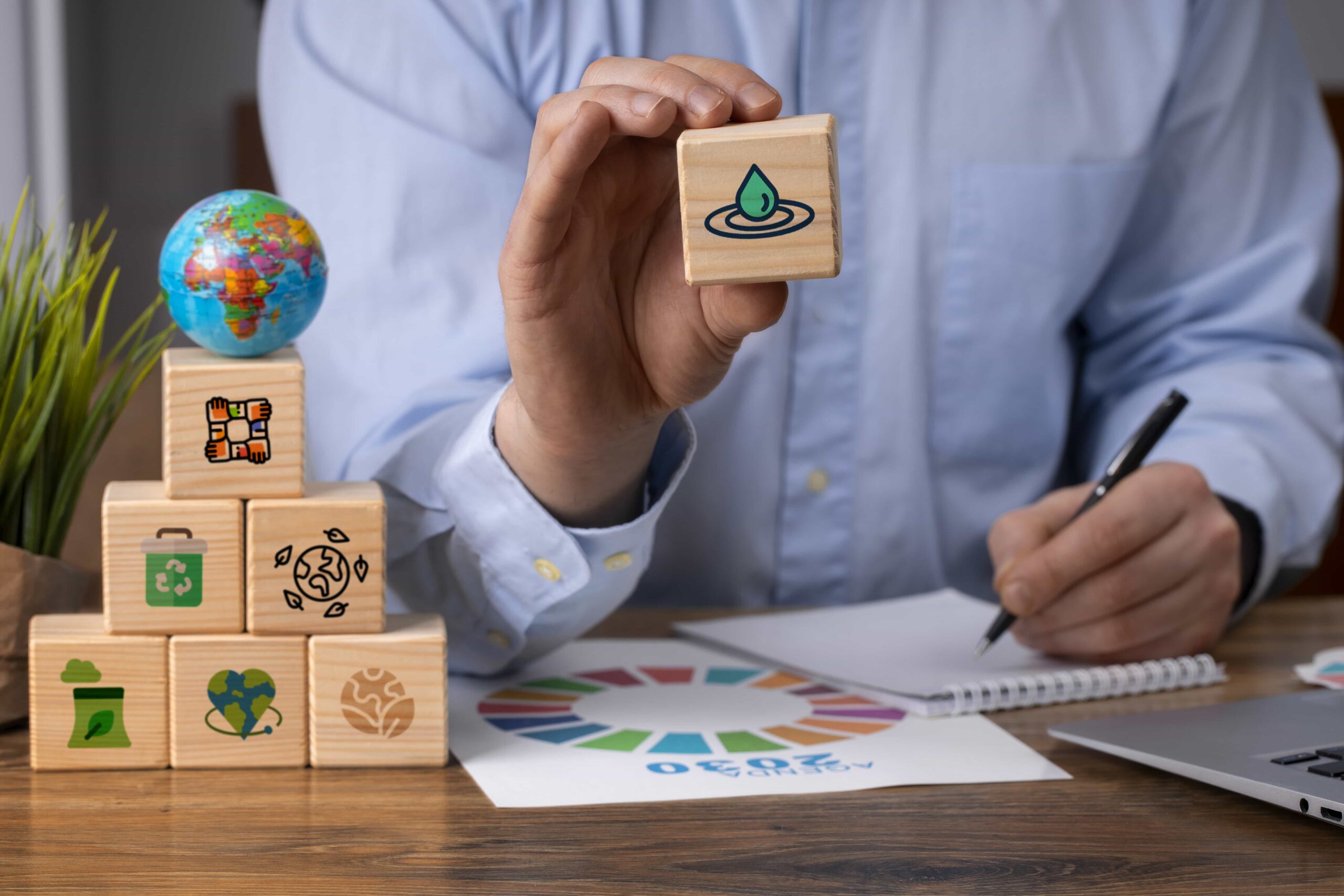Sustainable development Goals (SDGs) are the new 17 universal goals which cover a 15 years’ time from 2016 to 2030, these goals are the part of wider development agenda which will stand on the base formed by the Millennium Development Goals (MDGs). MDGs has made significant progress over the past years, especially when it comes to eradicating poverty and improving access to education and undoubtedly MDGs were very concrete and specific to a problem and were measured in numbers. But this close nature of MDGs by being so specific, had left out the other equally important area and that progress however, has been very uneven, with the improvement can be seen in the certain regions and among the certain social groups.
In rejoinder to the allegation that the MDGs were very narrow in focus, the new SDGs are release to confrontation a whole range of issues from gender inequality, to sustainable development, to climate change. The main target or the binding thread of these 17 goals and 169 targets of SDGs is to eradicate the poverty in all its form, including the extreme poverty, which is the greatest global challenge faced by the world and the unconditional requirement for sustainable development.
The SDGs has come up with new wide range of issues, but also embrace traditional MDGs area such as poverty, hunger, health, education and gender equality. And add on these MDGs new areas like the climate change, energy, economic growth, infrastructure, employment, cities, inequality, responsible consumption and communities, oceans, forest, sanitation and peace and security are also encompassed in the SDGs.
Why do the SDGs matter for the business?
As quoted by the Ban Ki-moon, United Nations Secretary-General, “Business is a vital partner in achieving the Sustainable Development Goals. Companies can contribute through their core activities, and we ask companies everywhere to assess their impact, set ambitious goals and communicate transparently about the results”. Unlike the SDGs predecessor, the MDGs, the SDGs openly ask and provide the businesses opportunity to develop and deploy business-led innovation, and technology to tackle the sustainable development challenge. SDGs gave the chance to the leading companies to showcase, how their business help in making the sustainable development of the society, both by minimising the negative impacts and maximize positive impact on the planet as well as on the society where they are doing business.
As Goal 9, “Industry, Innovation and Infrastructure”, promoter to build resilient infrastructure, promote inclusive and sustainable industrialization and foster innovation. Which can be achieve by making the business sustainable, which helps in increasing the employment and gross domestic product in the country. Taking care of this goal, Goal 12, ask to ensure the sustainable consumption and production patterns. According to UN, it is about promoting resource and energy efficiency, sustainable infrastructure, and providing access to basic services, green and a better quality of life and decent jobs for all, which link this goal to the goal 8 of SDGs which make the advocacy to achieve full employment for all, take care of labour rights and also to the NEET (the people who are not in education, employment and in training) crisis, and targeted year for this to achieve is 2020.
The important point of these development goals is they recognise the importance of business, to make the development of least developed countries by promoting business in the country, which help in generate employment and in reducing the poverty, gave the equal chance to everyone which help in reducing the inequalities and most important, decoupling of economic growth to the degradation of environment.
Covering the wide gamut of sustainable development goals pertinent to corporates- such as environmental degradation, health, poverty, education and climate change, and SDGs also help the corporate to connect with the global priorities. Corporate can capitalize these SDGs for their future activities like to shape and steer future goals and strategies, such as:
- To categorize the Future Opportunity: SDGs for the future will redirect all the investment whether it is private or public to achieve the challenges they have represented. In this the companies can outline their future ways like to deliver the innovative solution that can be helpful to tackle the problem and challenges.
- Gave more focus on sustainable development: In core businesses, the sustainable development is taking care off and are will implemented and established. The Goal 12 talked about the sustainable consumption and production, lay down the roadmap for the next 10 years’ framework of programmes on above discussed points. This will consequently will firming up the economic incentives for companies to use the available resources uses for production efficiently and effectively and also taking care of all the externalities, which are becoming more and more internalities.
- More transparent to their impact and performance: The SDGs provide a framework for action to be taken to achieve the particular goal that helps the corporates to communicate more effectively to their stakeholders about the impact of their decision to the society or to the environment and also about their performance. These goals will bring all the partners in a sync to address the most urgent societal or environmental challenge.
- Reintroduction of trade liberalisation: Goal 17 which advocate about the removal of trade barriers and subsidies like the fossil fuel and fisheries subsidies to ease the businesses and sustainable economic development. And is more focus on the global business and free trade in between the countries and call meaningful trade liberalisation. As it is pronounced by the SDGs twice that the international trade is the engine of inclusive and sustainable growth.
To get on the consensus on such a broad development agenda was an achievement in itself, but it’s a long way to go to achieve all these goals efficiently. It is clear that the SDGs are the business opportunities, and it will take a different kind of approach to achieve it. To achieve these no single company can single handed will achieve these goals, the partnerships will be critical. Corporates will have to work with the sector partners, the governments, the civil societies, to create a sustainable economy without the degradation of the environment as well as to ensure the transparency and accountability. For the corporate community, it’s still a long way to go, to how these goals will be implemented and measured, but for the first time, government, civil society, and business have come together and agreed on the common agenda and shared a vision for the future. Which can be seen as the common to follow for all to achieve the sustainable development whether it is eradication of poverty, inequality, stop environment degradation or to have create peace and justice for all and for these, corporate have a huge role in shaping and implementing these futuristic goals.
Written By : Author Shashank Chaudhury, a NuSocia Insights Author




